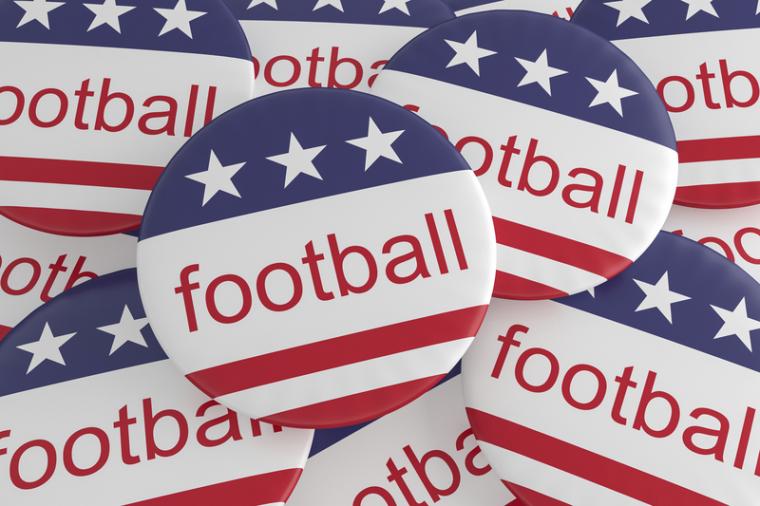

Here’s a strange scenario. A high school athletic director received a box of T-shirts imprinted with the names of local businesses as “high school sports sponsors,” including instructions to throw them into the crowd at Friday Night Lights.
Just one problem: The A.D. didn’t order the shirts. And no money came to the school from the so-called sponsorships. It was a scam perpetrated by a Texas-based company calling itself “Elite Sports.” And when the A.D. called, he was told the shirts were ordered “by a cheer coach.” Also a big lie.
According to Promo Marketing, Shenendehowa High School athletic director Chris Culnan then called the so-called promotional company, spoke to someone who claimed to be “James Stevens, the office manager.” Culnan asked to see a copy of the signed contract for the sponsorships.
Stevens, on behalf of Elite Sports, refused.
Promo Marketing notes, “What was even more confusing is that the businesses who donated to sponsor the T-shirt were allegedly led to believe by Elite Sports Promos that their donation would help fund the school’s athletic programs. Instead, Shenendehowa never saw a dime of the donations, some of which were as high as $1,000.
Needless to say, no shirts are being thrown at Shenendowah games. Not now, now ever.
Reporters at the Times Union noted, “The company sent out emails pretending to represent Shenendehowa Central School District and collected more than $7,000. Ten local businesses signed up to support the football team, paying for ads on T-shirts and banners. They thought the money would go to the football program, and their businesses would be promoted during the games. Some went so far as to take a second ad, promoting the basketball team.
“I thought it was how it funded the sports,” said Jay Sitterly, who owns Jay’s Auto on Route 146. He had signed up for two ads, at $300 each, plus a $900 banner. “It’s unbelievable. I thought I was doing the right thing, doing something good for the school,” he said.
One of the scam e-mails, sent out from “Shenendehowa High School Varsity Cheer” stated that the recipient had been a valued sponsor.
The cheer squad didn’t send the e-mails, though; in fact, the cheerleaders are actually supported by a local booster club called Shen Cheerleading Booster Club, which has nothing to do with Elite Sports in Texas.
It’s not the first time a scam like this has reared its ugly head. In spring 2019, an out-of-state company that contacted local businesses and residents in Vernon, Connecticut and posed as a representative of a local school district to fraudulently solicit donations for a youth sports program called “Rockville Athletics” prompted an investigation by the Vernon Police Department and the Connecticut Attorney General’s office.
And those were by no means a first; in fact, it’s a scam that surfaces multiple times per year across the U.S. The Hudson Valley News Network noted that back in 2017, local residents were receiving e-mails and telephone calls from persons claiming to be representatives of a company called Youth Sports Publications out of New Windsor, New York, who solicited donations purportedly to fund publication of yearbooks for local Little League teams. (Little League officials, however, had advised the Sheriff’s Office that no legitimate yearbook fundraising activities were being conducted by those organizations.)
And there are plenty of others. In fact, the Internet search results for keywords like “youth sports phone scam” come back with enough hits to have pages bulging with them. The problem of e-mails and phone calls from unverified numbers with solicitations for unauthorized phone callers is widespread – and it keeps proliferating.
So what should event owners do? A few hints, courtesy of the Federal Trade Commission, can be passed along to event participants:
- Make sure event participants know that any verified information on your tournament will originate from the official website and e-mail or from phone numbers associated with your office. List this information on your website and remind those who sign up for the tournament. Remind venue operators as well.
- Caution participants not to believe it if a caller says they are from your office or from an authorized vendor with your organization, asking for money.
- Remind them not to send money or give out personal information in response to an unexpected request — whether it comes as a text, a phone call, or an e-mail.
- It is possible to fake out a caller I.D. technology makes it easy for scammers to fake caller ID information, so the name and number you see aren’t always real. If someone calls your participants asking for money or personal information, let them know they can just hang up.
- Let your participants know you’ll never ask for upfront payment immediately that doesn’t go through your registration or sponsorship portal.
- Since many scammers use e-mail or robocalls to prospect for business, tell those who receive such calls to ask if the person is willing to come and meet with them. (If they can’t, they’re surely trying to fleece the person from out of state).
- If people have already paid, find out how. Credit cards have significant fraud protection built in, but some payment methods don’t. Wiring money through services like Western Union or MoneyGram may not be refundable. That’s also true for reloadable cards (like MoneyPak or Reloadit) and gift cards (like iTunes or Google Play).
- Ask your participants, if they receive a call, to hang up and call your office instead. (This includes robocalls).
And yes, while there are many legitimate fundraising operations that contract with youth sports organizations, it’s never a good idea to give money blindly. Encourage a healthy dose of skepticism and let them know the best offense is a good defense.

